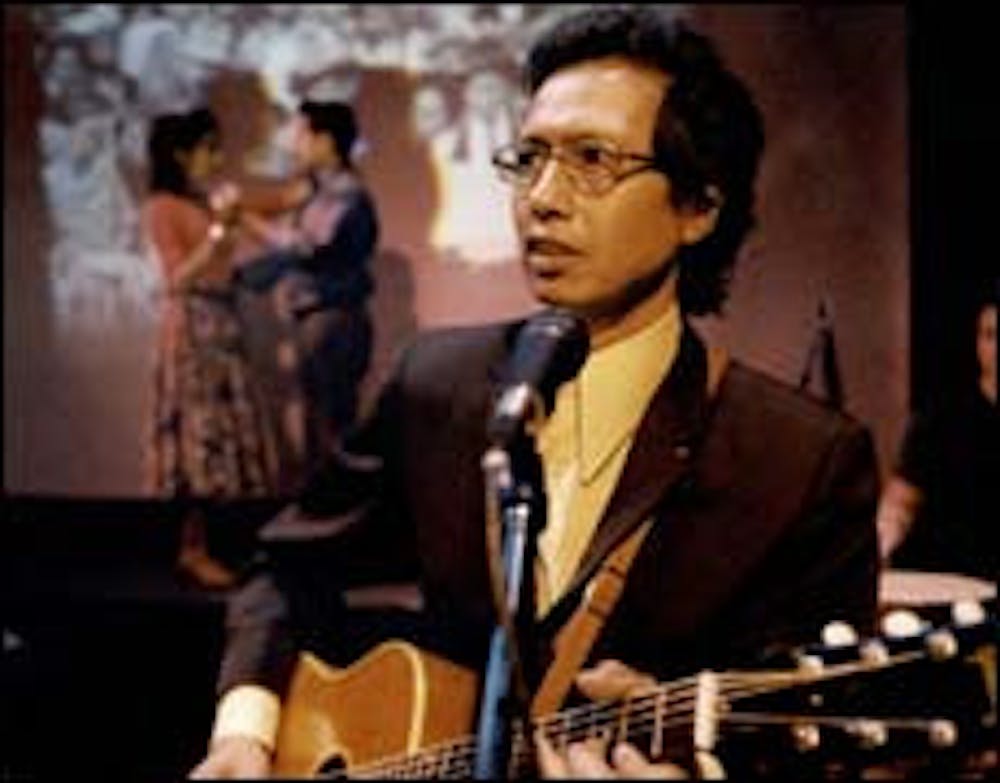The year is 1903. A teenage Mexican boy faces a daunting life decision: Stay in Mexico and endure an uncertain future bursting with economic struggles, or leave his country, his family, his culture and perhaps even his identity and migrate to the United States.
His is a decision hundreds of thousands of Mexican citizens have faced for more than 100 years. While much of America's late-1800s and early-1900s migration history is dominated by stories of European immigrants and Ellis Island, Theresa Chavez and a host of other artists want to tell another side of the massive migration to America: the Latino side.
"We want to look at American in a more broad context," Chavez says. "We want to open eyes to a whole area of American history that is not in the mainstream." Chavez says while people from the Southwestern United States might have a basic understanding of the early Latino migration, for others these stories can be new and intriguing.
Chavez, of Los Angeles, acts as the artistic director of the production, By the Hand of the Father, which chronicles the resilient plight of several Mexican immigrants to America in the early-1900s. By the Hand of the Father will be coming to Gammage auditorium at 7 p.m. Saturday.
The production was written largely based on real life accounts of male Mexican immigrants through the eyes of their children, Chavez, Eric Gutierrez and Rose Portillo, the creators of By the Hand of the Father.
"My father's generation went through the Depression, World War II, modernization, and the computer revolution. They have a very broad perspective on life," Chavez says.
She says current descendants can learn a great deal from the challenging tasks their ancestors encountered. "We want people to remember what this generation went through. Also, we want to pass some of the traditional experiences from ancestors to future generations, while leaving other traditions behind," Chavez says.
Likewise, the cultural struggles tolerated by the characters in By the Hand of the Father are primary themes in the production. Chavez says, once a person enters a bicultural environment, the question of what one retains from their original culture is raised. "What does one retain culturally as one assimilates?" Chavez says.
For Chavez, creating a macho-male plot in By the Hand of the Father illustrates one quality of her father's culture that she is grateful didn't get passed on to her. "During my father's time, the Latino men dominated the family and culture. But we can't really get upset at the inequality; we have to realize it was a different time in history."
With a mix of video, traditional Mexican music, spoken word and acting, Chavez says, By the Hand of the Father adopts a very unconventional approach to illustrating the stories. "The play doesn't run in a linear manner," Chavez says. Instead, the production is organized in scenes that individual characters experience alone.
"This kind of format works best for demonstrating multiple perspectives," Chavez says. "We want to create a kind of experience that people have never had before." The production features only two performers who take on multiple roles, including co-creator Rose Portillo. Seven musicians accompany the performers, with original composition from the Austin based songwriter Alejandro Escovedo.
Although the form of the production is unorthodox, Chavez emphasizes the content of the production is not. By the Hand of the Father's depiction of immigrants enduring battles with cultural assimilation is a story, she says, that most cultural groups in America can relate to.
"The production causes Americans of all ethnicities to want to question the history and struggles their ancestors went through," Chavez says, "whether they're Latino or not."
Want to be heard? Post your opinion in the forum below.
Reach the reporter at matthew.garcia3@asu.edu.
|
||||||||||||||




